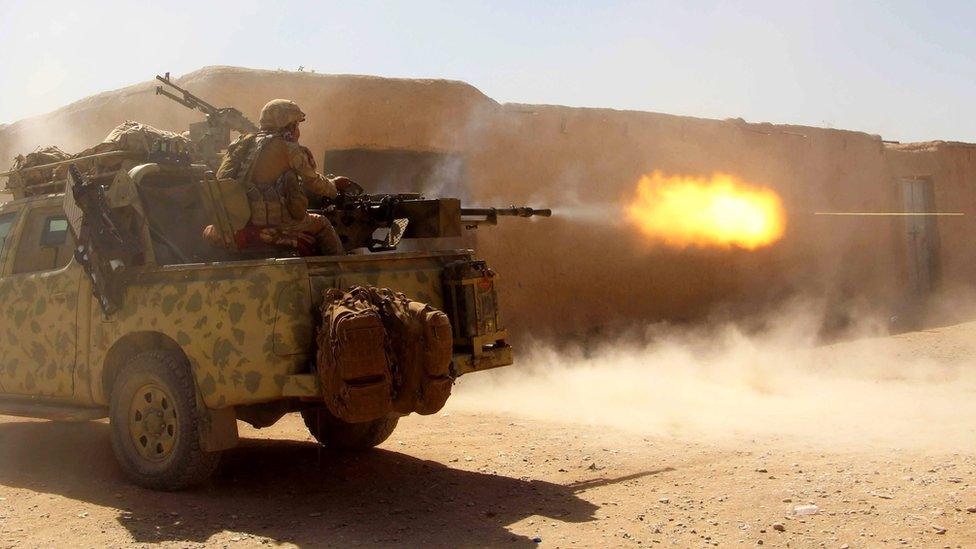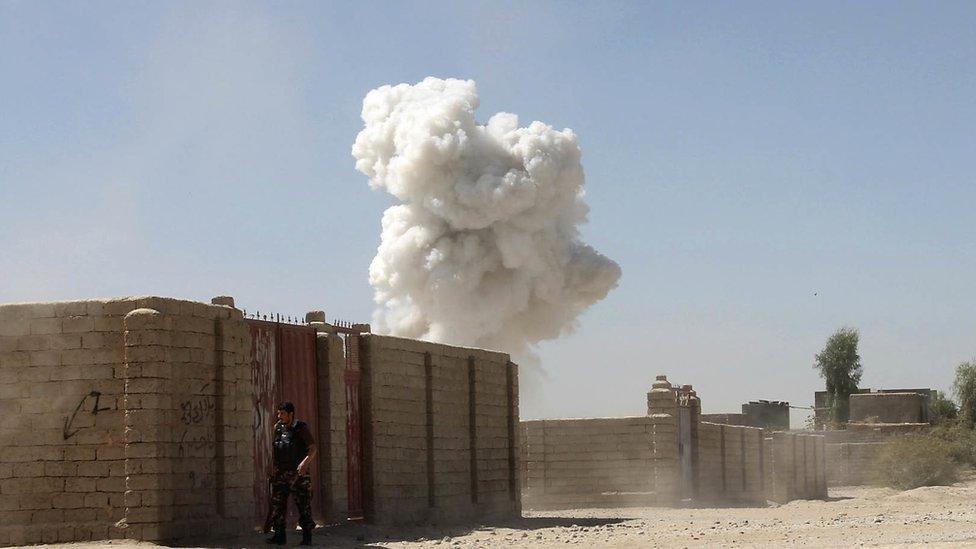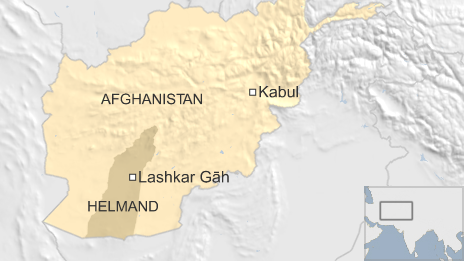Taliban fighters push into Helmand capital Lashkar Gah
- Published

Afghan security forces fight against the Taliban in the strategically important Helmand province
The Afghan Taliban have launched a major assault on the strategically important city of Lashkar Gah.
The city of 200,000 people is the capital of Helmand province, parts of which have been seized back by the militant group.
The new assault is their most concerted push yet into the city, in the south of the country.
At least 14 people were killed by a suicide bomber in Lashkar Gah on Monday. including 10 police officers.
The city was the scene of heavy fighting between the Taliban and Nato-led forces before their withdrawal in 2014.
Militant forces are said to have taken Bolan, an area close to the city centre, and are also said to control Nawa, which is often called the gateway to Lashkar Gah.

Smoke rises after a suspected suicide attack in the north of Lashkar Gah
A local politician told the BBC that Taliban militants came within two kilometres of the governor's compound.
However, a provincial government spokesman denied that areas close to the city centre were being contested. Officials said fighters have been pushed back to the outskirts of the city.
Thousands of people fled Helmand in August as Taliban fighters increased their activity, with many taking shelter in Lashkar Gah.
Authorities have closed the airport as fighting continues.

Helmand province is both a fertile farming region and a centre for opium production, bordering Pakistan on one end and covering major routes between cities.
Lashkar Gah is seen as the key to holding the entire province, and would represent a major victory for the Taliban.
The BBC's South Asia correspondent, Jill McGivering, said the fall of the city would be a "symbolic disaster" for government forces and the international community.
"For the past fifteen years, Lashkar Gah has been held up by the west as a safe, protected seat of government - a focus for international development, a weapon in the battle for hearts and minds," she said.
"In terms of its propaganda value too, the government and its backers simply can't afford to lose it."